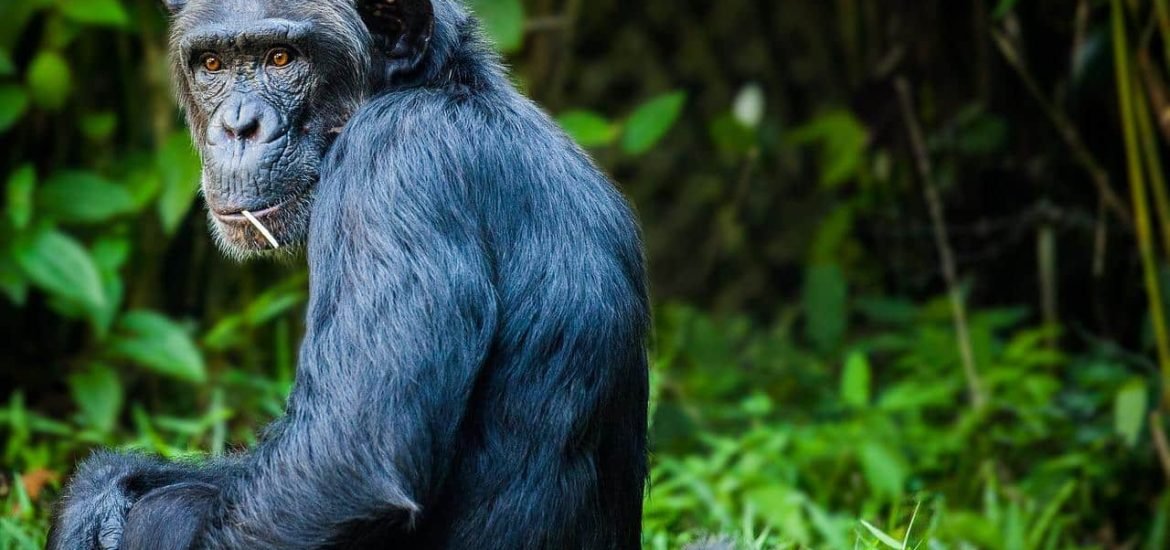
Chimpanzees communicate with each other to ensure they can cooperate, according to a study published in the journal Science Advances. According to the authors, this is particularly visible during hunting, for example, where these animals produce specific sounds to organise a hunting group and capture their prey more effectively.
Chimpanzees have a diet rich in forage and fruit, but they also look for opportunities to find meat. However, catching prey in the trees is not easy. These animals have realised that it’s better to hunt in a group, and now researchers from the University of Zurich, Switzerland, have uncovered the sounds they make to recruit and organise a hunting group.
The team analysed more than 300 hunting events recorded over the past 25 years at the Kanyawara chimpanzee community in Uganda and discovered that chimps could make specific sounds to attract other animals and organise hunting.
“Chimps who produce hunting barks provide information to those nearby about their motivation to hunt, and this information may persuade reluctant individuals to join, boosting the overall chances of success,” said Joseph Mine, PhD student at the Department of Comparative Language Science of UZH, who led the study.
Even as a group, hunting in a dense tropical forest is still tricky. Vocal communications allow these animals to be more effective and work together while they’re hunting. “Strikingly, following the production of hunting barks, we observed more hunters joining, greater speed in beginning the chase, and a shorter time to make the first capture,” said study co-last author Zarin Machanda from Tufts University, who heads up the Kanyawara Chimpanzee Project.
However, it’s still unclear why these sounds have this effect. “At the moment, it is still unclear if these barks are given intentionally to coordinate the precise actions of the group or whether these barks simply advertise an individual’s decision to hunt, which in turn, increases the likelihood of others joining them and with more hunters they are more effective,” added UZH professor Simon Townsend. Nevertheless, “communication plays a key role in coordinating complex acts of cooperation in humans, and this is the first indication that vocal communication might also facilitate group cooperation in our closest living relatives.”
At this stage, researchers don’t know when — during evolution — this relationship between group cooperation and communication started. “Our results indicate that the relationship between vocal communication and group-level cooperation is ancient. This link seems to have been in place for at least 7 million years, since our last common ancestor with chimpanzees,” concluded Mine.
Mine J, Slocombe K, Wiiilems E, Gulby I, et al (2022) Vocal signals facilitate cooperative hunting in wild chimpanzees. Science Advances, DOI: 10.1126/sciadv.abo5553